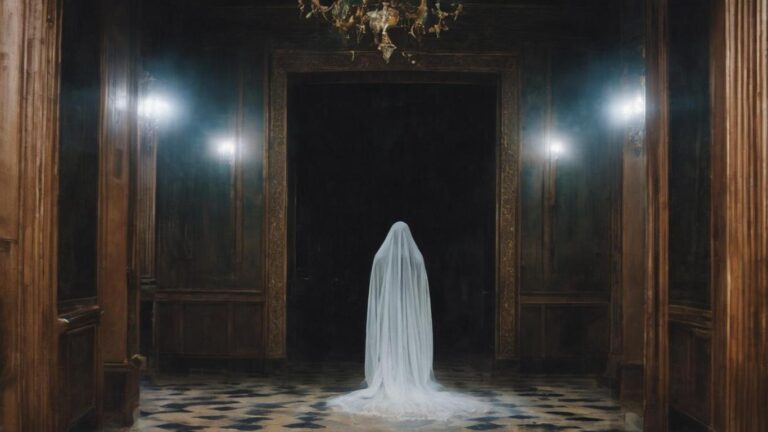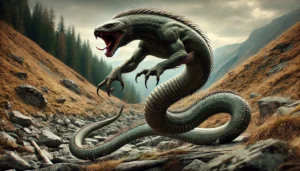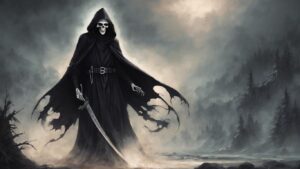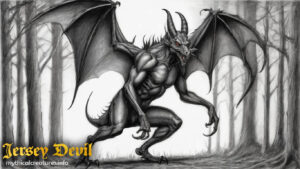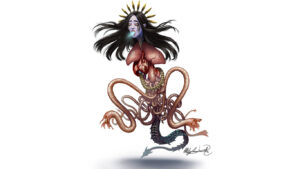Table of Contents
Ghosts, those ethereal entities that linger between the realms of the living and the afterlife, have fascinated and spooked humanity for centuries. In this article, we embark on a journey to unravel the mysteries surrounding ghosts, exploring the diverse cultural perspectives, the science behind paranormal experiences, and the enduring allure of ghost stories.
Global Ghost Folklore
In Japan, spirits called “yūrei” haunt with unresolved emotions. Meanwhile, Native American cultures see spirits as guides, guardians of the earthly realm.
Transitioning to African folklore, ancestral spirits are revered, their presence integral to cultural rituals and traditions. Vengeful spirits seeking justice dance through Latin American tales, reflecting societal concepts of morality.
In the Middle East, ghost stories often intertwine with religious narratives, echoing themes of redemption and divine justice. European cultures, steeped in centuries of history, weave tales of restless spirits and haunted castles.
As we traverse continents, it becomes evident that cultural perceptions of ghosts mirror societal values and fears. Ghost stories serve as conduits for transmitting cultural identity, teaching moral lessons, and connecting generations.
Transitioning back to Asia, particularly in Chinese folklore, ancestral veneration and offerings play a crucial role in placating spirits. The fluidity of ghostly interpretations showcases the dynamic relationship between cultures and their spectral beliefs.
In conclusion, the global panorama of ghost folklore paints a vivid picture of how different cultures embrace the supernatural. Whether as vengeful entities or benevolent guides, ghosts transcend the ethereal, leaving an indelible mark on the rich tapestry of human beliefs and traditions.
Appierance
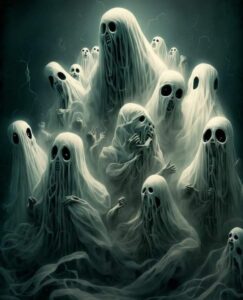
The specter emerged, a translucent figure shimmering in the moonlight. Its form was ethereal, an indistinct silhouette that wavered with an otherworldly glow. Wisps of mist curled around it, adding an eerie aura to its presence.
The ghost’s features were elusive, a semblance of the life it once knew. Faint echoes of facial features hinted at a past existence, yet the details remained elusive.
As it moved, the ghost seemed to glide, defying the natural laws that bound the living. A quiet whisper accompanied its every step, a melancholic murmur echoing through the still night.
Occasionally, the figure paused, as if caught in a moment of eternal reflection. In those instances, the air grew colder, and a subtle chill permeated the surroundings.
The ghost’s essence flickered like a dim flame, hinting at the transient nature of its spectral form. Transparent fingers reached out, yearning for connection yet unable to grasp the tangible world.
A ghostly visage, caught between realms, wore an expression that transcended mortal emotions. It conveyed a sense of longing, sorrow, and perhaps an unresolved purpose that bound it to the earthly plane.
Transitioning between visibility and near-invisibility, the ghost embodied the intangible mysteries of the afterlife. With each fleeting moment, it left an indelible imprint on the observer, a silent reminder of the enigmatic boundary between life and the hereafter.
Ghost powers
The ghost possessed extraordinary powers, each manifestation a testament to its supernatural capabilities. Ghosts, inherently elusive, could materialize abruptly, catching observers off guard. Moreover, they exhibited telekinetic prowess, manipulating objects without any visible force. In moments of intense emotion, their surroundings would resonate with spectral energy, creating an otherworldly ambiance. Transitioning seamlessly between dimensions, ghosts could traverse solid barriers effortlessly. Ephemeral whispers, a hallmark of their presence, conveyed messages beyond the realm of the living. Some ghosts displayed the ability to manipulate time, replaying scenes from their past lives. Despite their intangible nature, ghosts wielded influence over the living, leaving an indelible mark on mortal destinies. These supernatural beings, with their spectral powers, existed on the fringe of comprehension, embodying the mysteries that bridge life and the afterlife.
Modern culture
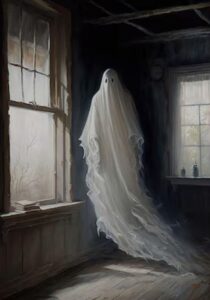
Beliefs in ghosts and ghost stories persist, and they are often intertwined with popular culture, entertainment, and paranormal investigations. Here are some aspects of ghosts in modern times:
Paranormal Investigations:
The popularity of paranormal investigation shows has risen in recent years. These shows often feature individuals or teams exploring purportedly haunted locations with the goal of capturing evidence of ghostly activity, such as electronic voice phenomena (EVP) or apparitions.
Technology and Ghost Hunting:
The advent of technology has influenced how people approach ghost hunting. In addition to traditional methods like séances and divination, modern ghost hunters use equipment such as infrared cameras, electromagnetic field (EMF) meters, and voice recorders to document paranormal phenomena.
Scientific Skepticism:
While belief in ghosts persists, scientific skepticism often questions the empirical evidence supporting the existence of ghosts. Many purported ghostly encounters can be attributed to psychological factors, natural phenomena, or the power of suggestion.
Haunted Tourism:
Haunted tourism thrives as certain locations, steeped in eerie reputations, draw crowds seeking paranormal encounters or thrilling supernatural experiences. Transitioning from conventional sightseeing, these destinations offer a unique blend of history and the macabre, captivating visitors with tales of ghostly apparitions and inexplicable phenomena. Whether exploring ancient castles, abandoned asylums, or notorious battlefields, tourists actively engage in the allure of the unknown. The industry capitalizes on the fascination with the paranormal, providing an immersive experience that melds curiosity with the excitement of encountering the spectral, blurring the line between history and haunting.
Entertainment and Media:
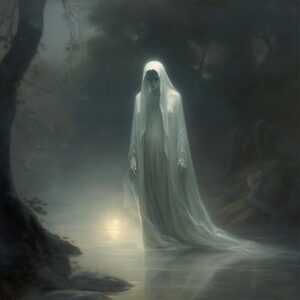
Movies and TV Shows: In the realm of movies and TV shows, ghost stories have carved a lasting niche in popular culture. Iconic examples include “The Sixth Sense,” where a young boy communicates with spirits, and “Poltergeist,” featuring a haunted suburban home. Transitioning to television, “The Haunting of Hill House” masterfully blends horror and family drama, while “Ghost Hunters” delves into real-life paranormal investigations. These productions showcase diverse portrayals of ghosts, from benevolent entities to malevolent spirits. Noteworthy is “Casper the Friendly Ghost,” a beloved animated character embodying a friendly specter. In contrast, films like “The Conjuring” franchise and “Insidious” delve into more ominous supernatural realms, heightening the horror genre’s appeal. The enduring popularity of ghost-centric narratives attests to society’s enduring fascination with the mysterious and the unknown, transcending traditional storytelling boundaries.
Literature: In literature, the horror genre thrives on exploring ghostly themes. Stephen King’s “The Shining” weaves a haunting tale of a possessed hotel, while Shirley Jackson’s “The Haunting of Hill House” creates an atmospheric and chilling ghost story. Transitioning to classic literature, Charles Dickens’ “A Christmas Carol” features the iconic ghostly visits of Jacob Marley and the Christmas spirits. Contemporary authors like Neil Gaiman, in “The Graveyard Book,” reimagine ghostly narratives for younger audiences. These books, rich in supernatural elements, captivate readers with spectral tales that transcend time and genre conventions.
FAQ
What is the real meaning of ghost?
In a literal sense, a ghost is often considered the spirit or soul of a deceased person that is believed to linger in the physical world.
What does ghost symbolize?
Symbolically, ghosts can represent various concepts, including unresolved issues, lingering memories, or the impact of the past on the present.
What does it mean when someone calls you ghost?
Calling someone "ghost" in colloquial terms may imply that the person is elusive, mysterious, or difficult to contact, often in the context of social relationships.
What does the first ghost symbolize?
In literature or folklore, the first ghost in a story may symbolize a catalyst for change, a messenger, or a representation of the supernatural that introduces a transformative element to the narrative.
